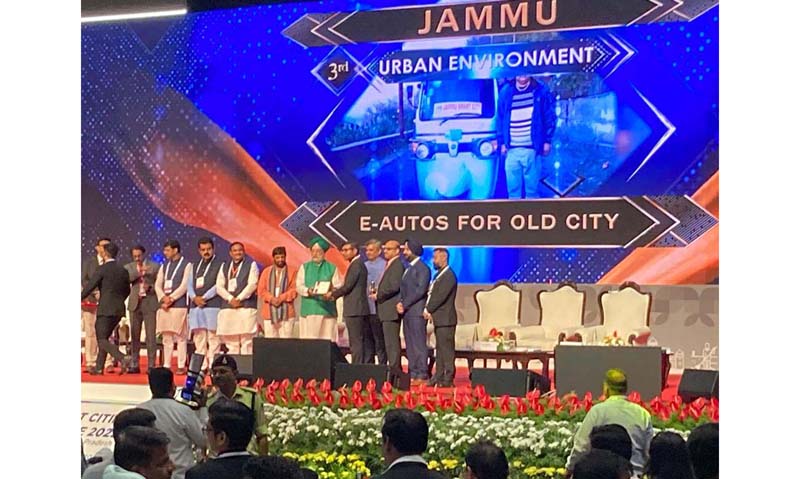
Excelsior Correspondent
JAMMU, Sept 28: The Jammu Smart City has received award for its e-mobility project, which includes successful operations of eAutos and eRickshaws under Urban Environment category of India Smart Cities Awards Contest (ISAC) 2022.
The award ceremony was graced by President of India, Droupadi Murmu as chief guest at Indore, Madhya Pradesh. The India Smart Cities Award Contest is organised under the Union Ministry of Housing and Urban Affairs’ Smart Cities Mission. It recognises and rewards cities, projects and innovative ideas that promote sustainable development across the 100 Smart Cities.
The Jammu Smart City bagged the third spot under the Urban Environment Project category while first position in this category was bagged by Indore and Shivamogga (Karnataka) came in at second place, the official said.
The Jammu Smart City emerged as the winner in the India Smart Cities Awards Contest category from among 75 proposals submitted by 48 cities.
As per reports, Chief Executive Officer (CEO) of Jammu Smart City Limited (JSCL) Rahul Yadav received the award from Union Minister for Housing and Urban Development Hardeep Singh Puri.
“The award comes as a testament to the Jammu Smart City Limited’s unwavering commitment to driving innovation in urban mobility and contributing to a greener, more sustainable urban landscape nationwide,” the official said, terming the award as a “landmark achievement”.
The e-Mobility Project tackles pressing urban challenges, including traffic congestion, pollution and limited transportation options in the “vibrant city” of Jammu.
“The eAutos and eRickshaws are emission-free transportation with positive environmental impact. These electric vehicles stand out for their cost-effective operational dynamics, making them the preferred choice for both passengers and drivers,” the official said.
Earlier, President Murmu said more than 50 percent of our population would be living in urban areas by the year 2047 and that the total contribution of cities to GDP would be more than 80 percent by that time.
“We have to make a roadmap for the future and move forward on it – keeping in mind the growing aspirations and needs of the cities and their residents,” she said.

